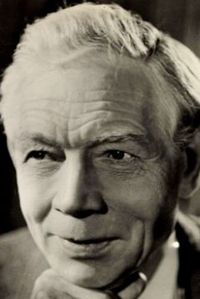Gustav Püttjer, a multitalented and influential figure, made his grand entrance into the world on May 15, 1886, in the culturally rich and dynamic city of Hamburg, Germany, a place that would later serve as the backdrop for his remarkable journey. As a multifaceted individual, he would go on to carve out a niche for himself in the entertainment industry, leaving an indelible mark on the world of film, where he would make a lasting impression as a skilled actor and production manager.
Noted German actor, renowned for his impressive body of work, which comprises a diverse array of notable films, including the 1936 production "Die lustigen Weiber", the 1937 release "Wie der Hase läuft", and the 1931 film "Comradeship", effectively demonstrating his remarkable versatility and range as a performer.
Throughout his illustrious career, he has left an indelible mark on the world of cinema, with his contributions continuing to be celebrated and cherished by audiences and film enthusiasts alike, even in the passage of time.
His remarkable repertoire, a testament to his enduring talent and dedication to his craft, continues to inspire and delight, ensuring his legacy as a beloved and respected figure in the world of German cinema.
Gustav Püttjer's existence, marked by profound significance and lasting impact, drew to a sorrowful close on August 11, 1959, in the storied city of East Berlin, East Germany, leaving behind a testament to his remarkable life's work, which would forever be treasured by those who had the privilege of knowing him personally and were inspired by the profound influence his accomplishments had on their own lives.























